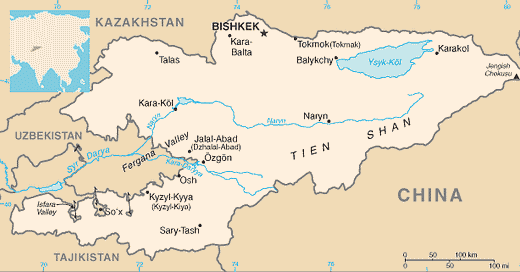Health officials in Kyrgyzstan have reported a total of 13,358 measles cases during the first nine months of the year.
Fortunately, the number of cases has steadily decreased in recent months, with 1,257 cases reported in June, 828 in July, 260 in August and 87 in September.
Most cases have been reported in Bishkek, Chuy Oblast, Jalal-Abad Oblast, Osh Oblast, and Osh City. The primary cause of the outbreak remains with persistent refusal of immunization among some caregivers and adults.
In recent weeks, Kyrgyzstan received 526,000 doses of the measles-rubella vaccine, which enabled the immunization of more than 342,000 children and adults. This initiative strengthens the ongoing efforts to control the measles outbreak in the country. The vaccines were procured and delivered by UNICEF with funding from Gavi, the Vaccine Alliance.
“Thanks to the measures taken, the incidence of measles in the republic is steadily declining. The country is conducting an additional catch-up immunization to maintain the positive trend and create sustainable collective immunity, as well as protect high-risk groups from measles infection,” said Bubuzhan Arykbaeva, Deputy Minister of Health of the Kyrgyz Republic.
The vaccines were administered during a catch-up immunization campaign from 21 October to 2 November. The campaign primarily targeted children aged between 9 and 84 months. The vaccine was also used for contacts with confirmed cases.
"Kyrgyzstan, like many other countries, has faced a serious measles outbreak, affecting thousands of children. I urge all parents to ensure their children receive the full course of vaccinations, including measles, as an essential act of love and protection”, commented Cristina Brugiolo, UNICEF Representative to the Kyrgyz Republic.
Subscribe to Outbreak News TV on YouTube
Measles is a dangerous and highly contagious viral disease. Complications can be life-threatening particularly for young children under five years old, malnourished and disabled children. Therefore, both children and adults who have not received preventive vaccinations are at risk of infection or contacting the disease to vulnerable people. Only vaccination offers protection against the disease.





